In the globalized context of business, invoicing foreign clients comes as a normal practice for entrepreneurs and companies in Romania. As a freelancer in Bucharest or a tech startup in Cluj-Napoca, knowing how to navigate cross-border invoicing helps to build credibility, remains compliant, and safeguards the smooth functioning of financial flows. This guide aims at outlining the practical steps needed to invoice clients overseas with focus on VAT implications, legal obligations and the optimum approaches to take.
Understanding Your Business Structure and VAT Status
Before dealing with foreign clients and issuing invoices to them, it’s crucial to understand the status of your business’s VAT or tax activities. In Romania, there is a split in businesses being either VAT registered or Non-VAT registered. This difference will affect how you invoice them and the VAT treatment applicable for each.
-
VAT-Registered Businesses: If your business is VAT registered, there are specific compliance requirements and rules to follow in relation to invoicing including the issuance of VAT invoices and the application of reverse charge mechanisms.
-
Non-VAT Registered Businesses: If not VAT registered, you are most likely to be on standard rate billing contracts where you issue invoices sans VAT, unless particular conditions exist.
Determining your business’s VAT position aids you in selecting the most suitable invoicing policies and meeting the requirements of Romanian taxation laws.
Identifying the Nature of Your Foreign Clients
The type of your client, whether they belong to the European Union region or are from a different region outside the European Union, makes a difference in how you invoice them.
-
EU Clients: While invoicing clients registered within the EU, one does not normally charge VAT in the case of a registered client because the reverse charge mechanism applies, meaning that the responsibility for paying VAT shifts to the client.
-
Non-EU Clients: In the case of clients from outside the EU, services rendered are normally exempt from VAT according to Romanian tax law, but this exemption must be properly documented and comply with particular terms.
Keeping in mind the nature of your client assists selecting the appropriate VAT treatment and ensures complying with Romanian and European Union taxation authorities.
Essential Elements of a Compliant Invoice
An invoice is compliant, not merely a payment request, a legal document in its own right which requires specific criteria to be met for it to be considered a valid document. In Romania, invoices must include:
Invoice Registration: The sequential number assigned to the invoice of which the Romania taxpayer has the regulated corresponding permissions to issued.
Date of Issuance: The date of issuing the invoice.
Supplier And Client Information: The parties full name along side their address and VAT identification numbers.
Description of supplied Goods Or Services: Clear label of details of what they are providing.
Supply Quantities and Price Per Unit: Clear quantity and price for each good or service rendered in the invoice along-side description.
Final Reckoning: The case total which is and is entitled to being paid, VAT if applicable otherwise payment pending.
VAT Information: The VAT percentage rate alongside the VAT amount, or an indication of the exemption or reverse charge mechanism that has been applied.
Failure to include any of these specifics greatly underm the compliance of the invoice making it difficult for your client to process it correctly.
Applying the Reverse Charge Mechanism
A pivot of EU cross-border invoicing is the reverse charge mechanism, where the responsibility of reporting and paying VAT shifts from the supplier to the recipient. To apply the reverse charge mechanism:
-
Verify Client’s VAT Status: Obtain the client’s VAT identification number to check whether they are VAT registered in the EU’s VIES system.
-
Include a Specific Statement: A specific statement such as “Reverse charge- Article 196 of Directive 2006/112/EC” must be included on the invoice indicating that VAT responsibility shifts to the client.
-
No VAT Charged:Do not charge VAT in the invoice as the client accounts for VAT in their own country.
Proper application of the reverse charge mechanism ensures compliance with EU VAT regulations to avoid potential tax liabilities.
Issuing Invoices to Non-EU Clients
Issuing invoices to clients outside the EU requires different VAT treatment. In general terms, services offered to clients outside the EU are VAT exempt. However, to qualify for the exemption:
-
Establish the Place of Supply: Ensure that the place of supply of the service is outside the EU.
-
Document the Transaction: Maintain documents that support the service was provided to a non-EU client such as contracts, correspondence, and payment records.
-
Include Appropriate Statements on the Invoice: State the reason for the VAT exemption on the service provided as because its place of supply is outside the EU.
Invoices issued to non-EU clients are very helpful in taking advantage of VAT exemptions while remaining compliant with Romanian laws and regulations.
Using E-Invoicing Systems to Streamline Your Work
Attention innovative builders of businesses – for those of you managing operations from Romanian and servicing clients in other countries, there’s a game-changing tool: electronic invoicing. Romania had implemented the RO e-Factura for domestic B2B transactions and while local businesses are required to comply, the guidelines are looser for foreign clients. However, even where there is no obligation to invoice clients across borders, the use of e-invoicing systems for cross-border invoicing improves accuracy, enhances organization, and accelerates processing.
If your clientele is based within the EU, e-Factura may seem optional, but it has advantages that are quite beneficial. It helps you comply with Romanian tax regulations, ensures that your documentation is tidy, and enhances your image as a professional and efficient business. For clients outside the EU, e-invoicing is not a necessity in any way, but consider it as a logical step. Sending invoices electronically through reputable systems can enhance your workflows, as well as give you peace of mind rest assured that everything is registered, even amidst varying time zones, currencies, or client systems.
In any circumstance, employing an automated e-invoicing system eliminates any potential invoicing conflicts, as clients are no longer confused regarding their billing statements, and the business will not struggle sorting out invoicing problems during the tax season. Regardless if there is a formal requirement for it, it is a step towards protecting the organization in the years to come while demonstrating professionalism to the clients.
Dealing with Currency and International Payments
It is no secret that the Romanian specialists have to tackle the problem of dealing with foreign clients’ currencies. However, the easier one can invoice is in any currency reasonable for the client, be it euro, dollar, or any other currency. However, there is a catch: it is a prerequisite to paying an equivalent sum in Romanian currency RON, especially when VAT is concerned, or if dealing with the local tax office.
Now, how your client pays you is also important. IBAN and SWIFT codes are employed by most international clients as well as other platforms such as PayPal, Wise, and Revolut. With clear payment guidelines given to you, your payment will come to you quicker and withless complications. Be sure to thoroughly outline all your bank details, verify account information, and clarify the currency you aim to receive. Some platforms even provide invoicing and exchange rate features that enhance user friendliness.
Ensuring consistency in the approach taken towards payment and the currency used does more than streamline the process: it protects your earnings from fees, delays, and conversion inaccuracies. Earning becomes more efficient by having clear and straightforward processes, further enhancing trust which leads to healthier business relationships.
Keeping Clean Records: Why Documentation is Your Best Friend
Documents of any kind, especially invoicing documents, are more than just paperwork that needs a stamp of payment for your business; they are critical pieces of work that keep it aligned and organized legally and financially. For this reason, the term ‘record-keeping’ is, and should be seen as more than a mundane activity. It should be regarded as a necessity— a dire protection mechanism.
In Romania, as is the case with many other jurisdictions, you are obligated (by law) to archive copies of all invoices for a minimum of ten years. That is right, an entire decade. It might sound outrageous, but the idea around such extensive periods is to ensure that both the individual and the tax system are protected. In the event that something does come up unexpectedly – be it a normal audit or actual client disputes – having thorough documentation is unparalleled.
Common Pitfalls and How to Avoid Them
Results from even the most seasoned specialists within the industry show that there are still some hurdles to clear with cross-border invoicing that persists as an issue. Some common problems are:
-
Incorrect VAT Application: VAT must be observed, taking into consideration the client’s geographical zone and VAT position.
-
Incomplete Invoices: Ensure that all documents that are required are present.
-
Delayed Invoicing: Invoices need to be issued on time to avoid contravening cash flow or breach of the terms of the contracts.
-
Miscommunication with Clients: Ensure that all relevant terms and expectations have been clearly delineated and there are no disputes that arise.
Clients and suppliers alike stand to benefit from seamless cross-border invoicing. However, allow the underlying set rules to guide you in terms of where there can be infringements.






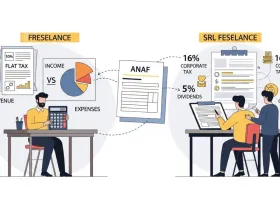




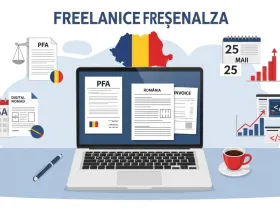
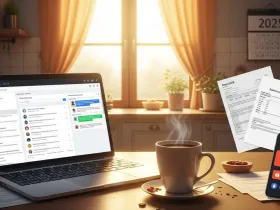
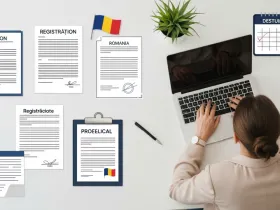
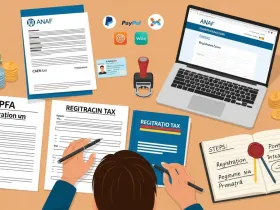
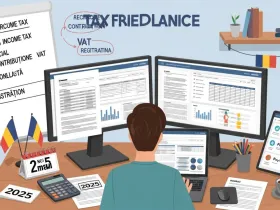
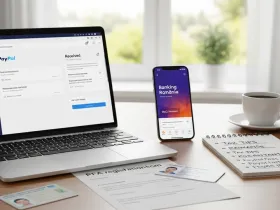
Leave a Reply
View Comments